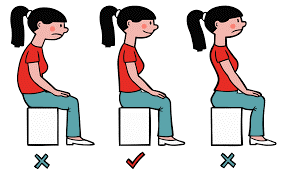
Hypermobility physiotherapy
Are you more than a bit bendy?
Bodyfit Physio is the place for you. Our unique approach will empower you to create meaningful change in your life. We listen carefully. We always believe you, and believe in you. Lots of people’s joints move more than average and this doesn’t have to be a problem, in fact many elite athletes are hypermobile. Though, for some people hypermobility can create additional challenges and not just for the joints. It is common to have issues with other systems including the gut, the autonomic nervous system and more. You might have heard of the phrase,
“If you can’t connect the issues, think connective tissues!”
We love being able to help people connect their issues and begin to find management strategies to improve their joint and multisystem issues. We understand that each person is an individual. One of our team values is “Health for All”. We embrace diversity and individuality. We strive to meet you where you are and explore possible ways to move in order to live the life you want to live.
Neurodiversity
Neurodiversity is common with hypermobility – autism (ASD) and ADHD are mentioned in the literature. We strive to make our space as inclusive as possible. Our physios enjoy working with neurodiversity and make as many adaptions as needed to make your experience of physiotherapy as comfortable and helpful as possible. We are aware that therapies can increase your load, and we try to find ways to help make your life easier
Pain management
Joint pain is very common because when your joints move a lot they can be at risk of injury. Many people with connective tissue disorders sublux or dislocate their joints, and there are lots of different ways to injure joints that are less severe. We help you to plan how to protect your joints, by learning to move (and be still) in a way that uses your muscles to control movement. Building proprioception (awareness of where your joints are in space), postural control, core strength and general strength are all important.
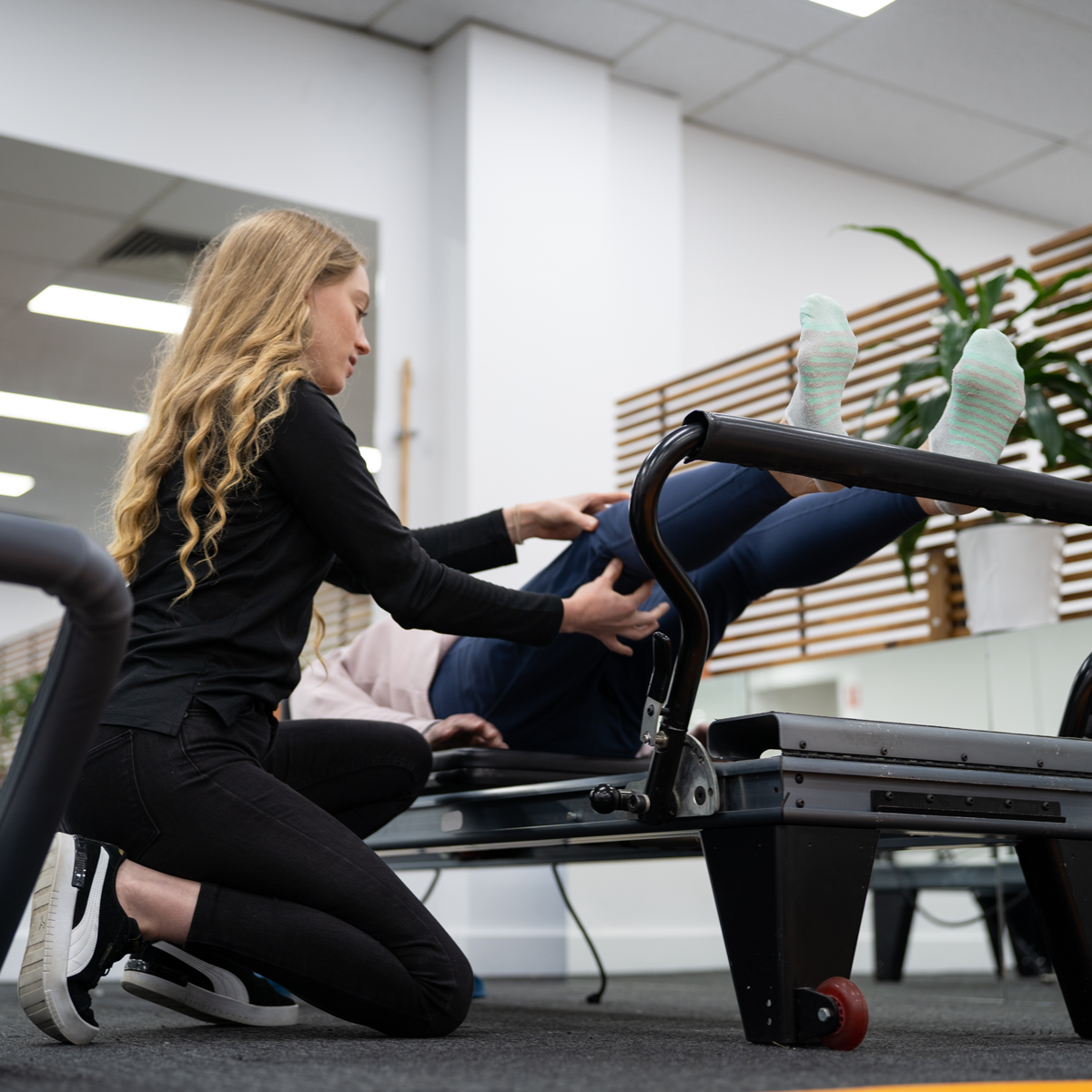
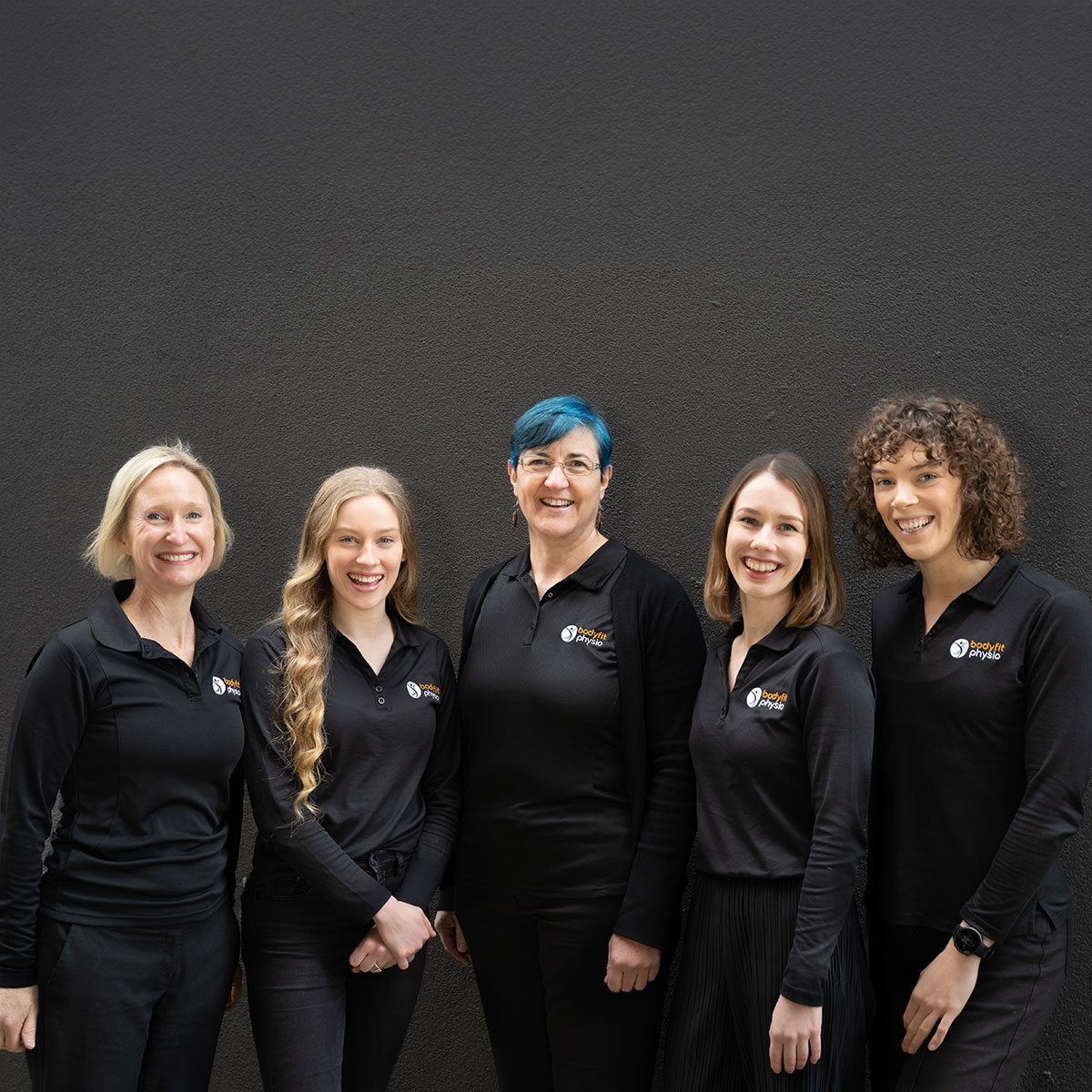
Pacing
We know that fatigue and post exertional malaise (PEM) can make exercising – and life- very difficult. We respect your starting point and will never push you to do something that is going to trigger your pain or fatigue symptoms. We will help you to find a baseline of safe activity, balanced with sufficient rest, to avoid a ‘boom-bust’ cycle of triggering fatigue.
Related issues that occur with Hypermobility Spectrum Disorder or EDS – we can help
- Postural Orthostatic Tachycardia Syndrome (POTS)
- Fatigue; Chronic Fatigue Syndrome (CFS); ME/CFS
- Gut issues including constipation; gastroparesis; slow transit of the bowel
- Pelvic Girdle Pain or Pelvic pain
- Mast Cell Activation Syndrome (MCAS)
Types of treatments that can help with hypermobility
- Pilates
- Posture
- Pacing
- Hands on treatment
- Hands on treatment for Pelvic Girdle Pain
- Pelvic health physio
- Telehealth
Are you ready to improve your health?
We look forward to helping you live the life you want to live. Take the first step today by booking an assessment with one of our hypermobility practitioners or please don’t hesitate to contact us for more information.
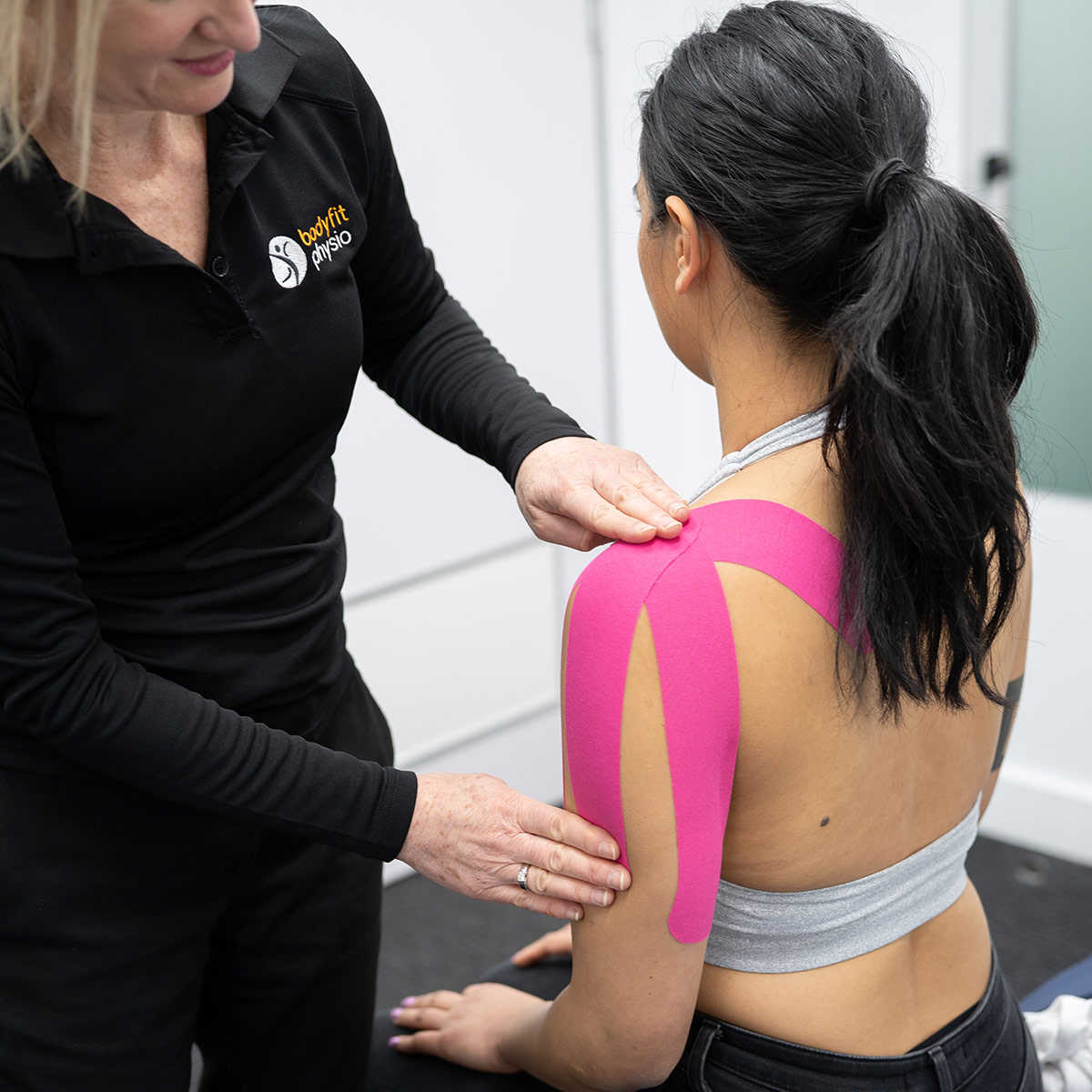
are you ready to improve your health?
Choose your physiotherapist
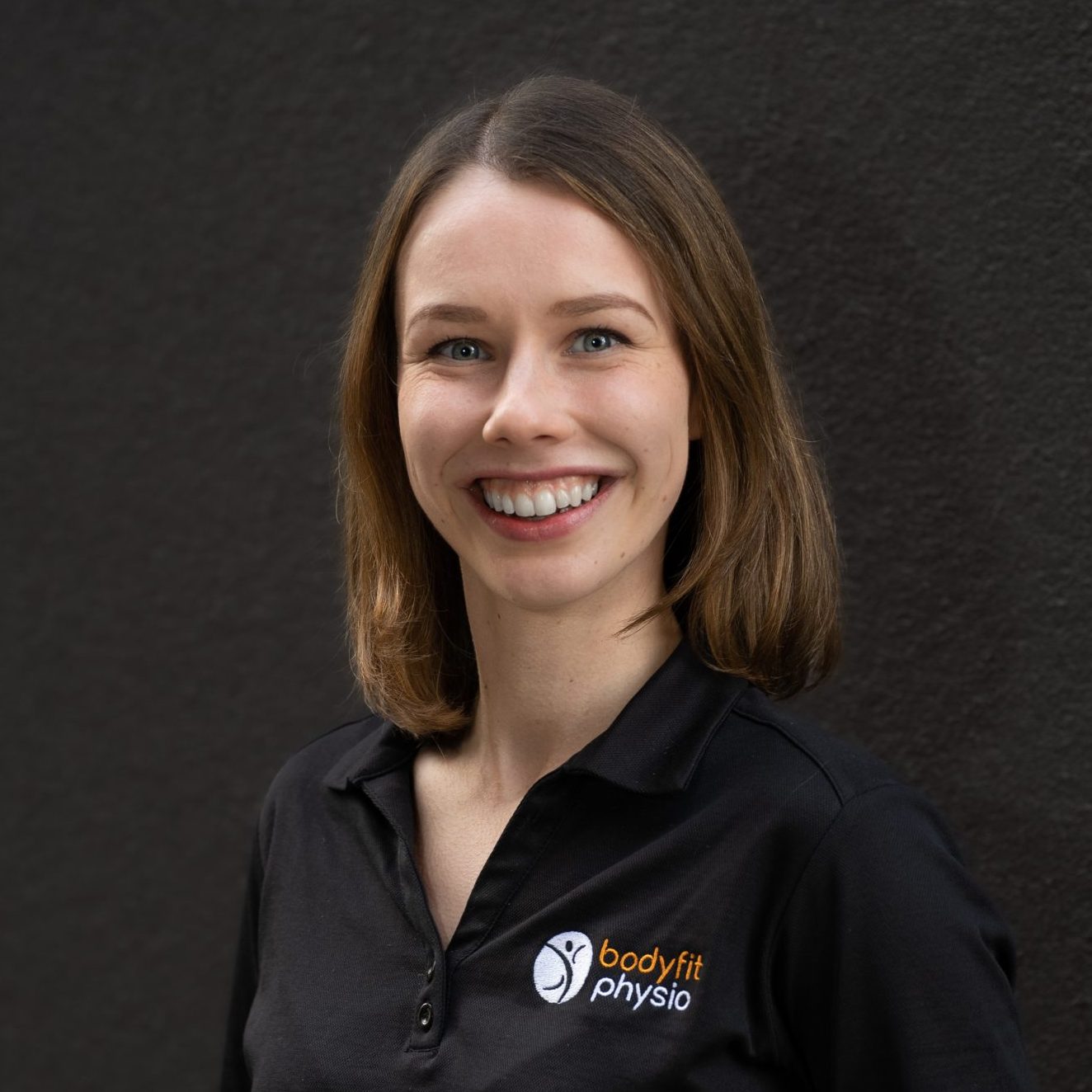
Emilija Olsen (she/her)
BAppSc, MPhysioPrac
Ante/Post natal, Hypermobility/EDS, Dance and Performing Arts, Dry Needling, General Physio.
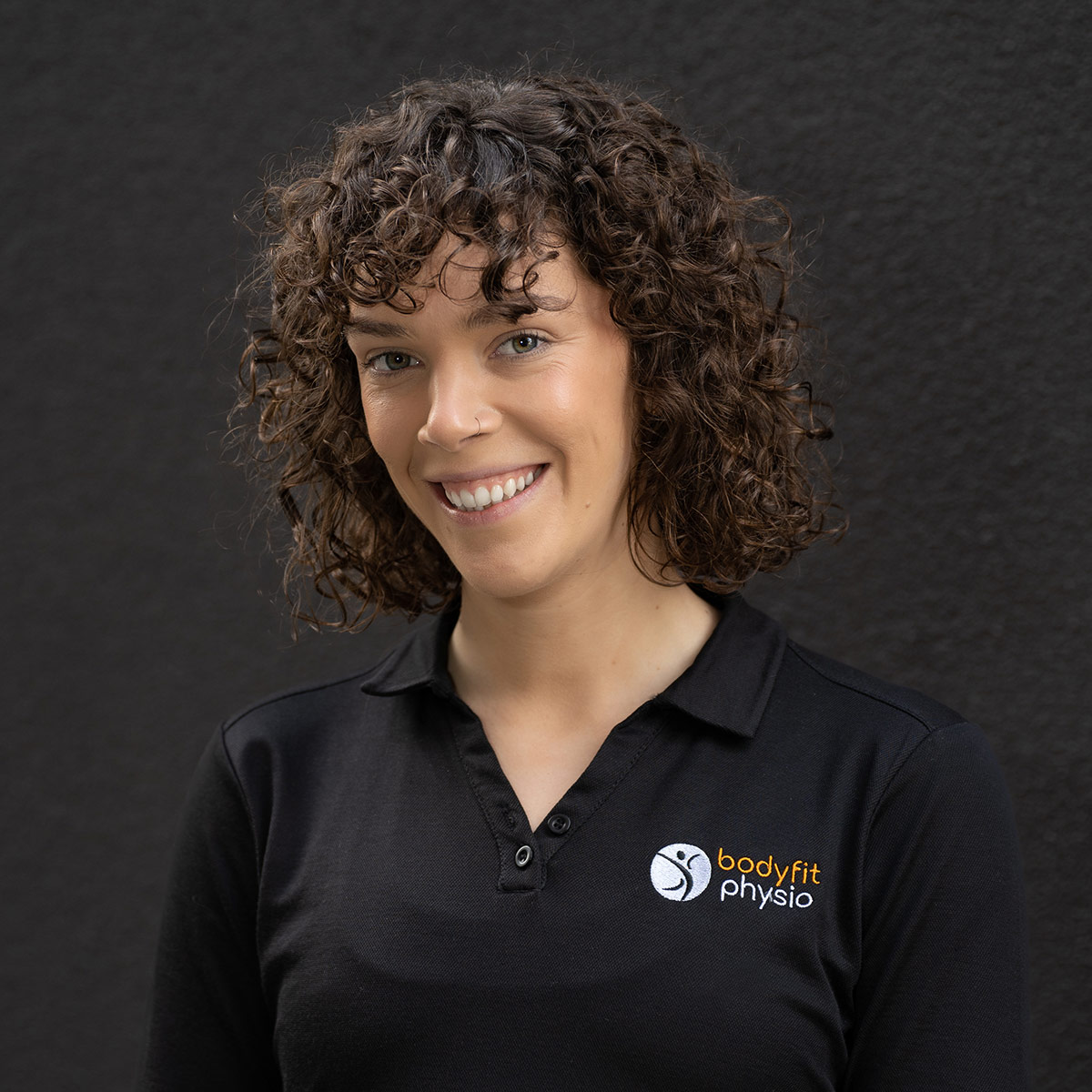
Hilary McAdam (she/her)
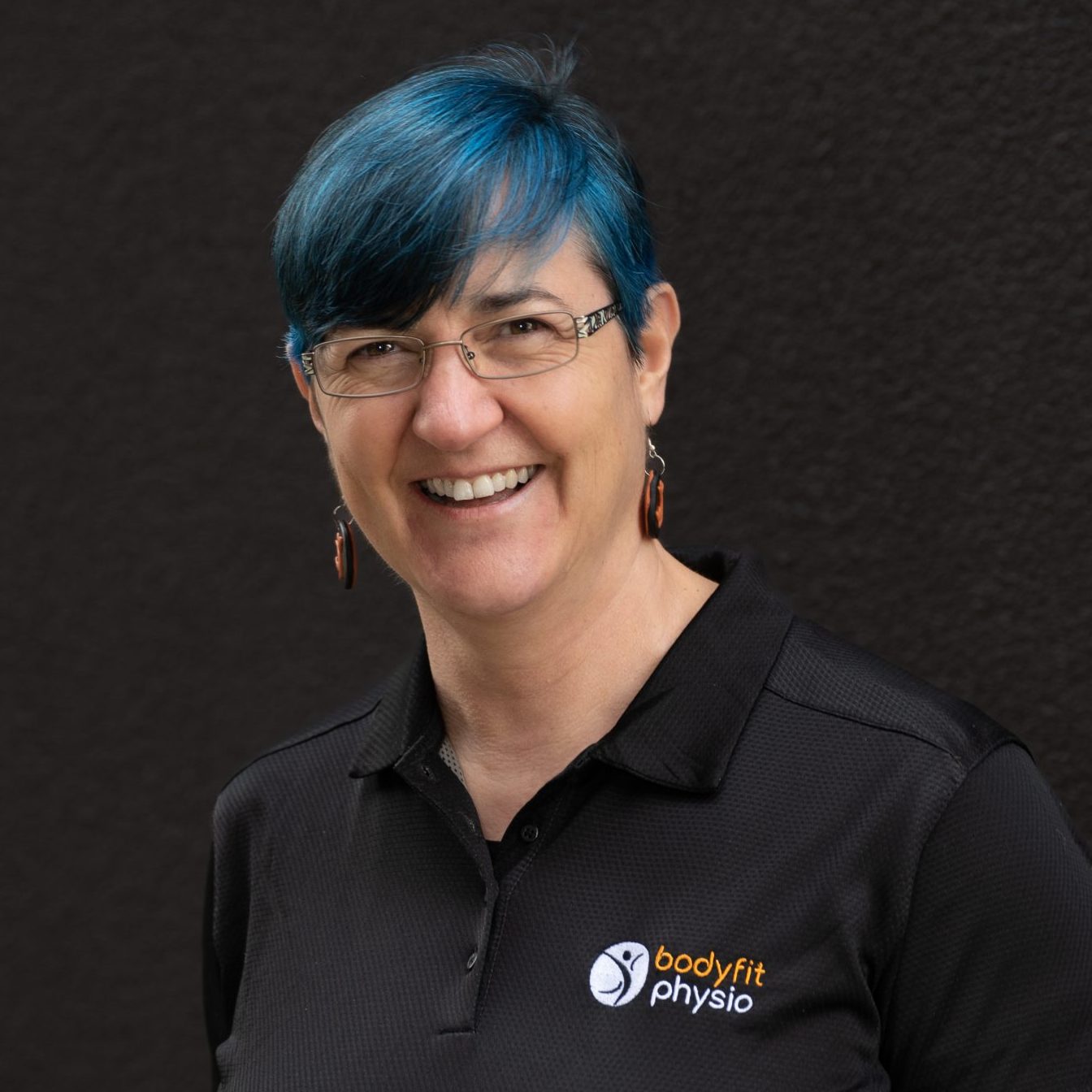
Terry Wesselink (she/her)
BSc (Physio); Post Grad Cert (Pelvic floor); Cert IV TAE
Hypermobility, Chronic Pain, Fatigue, Bladder, Bowel and Pelvic health.
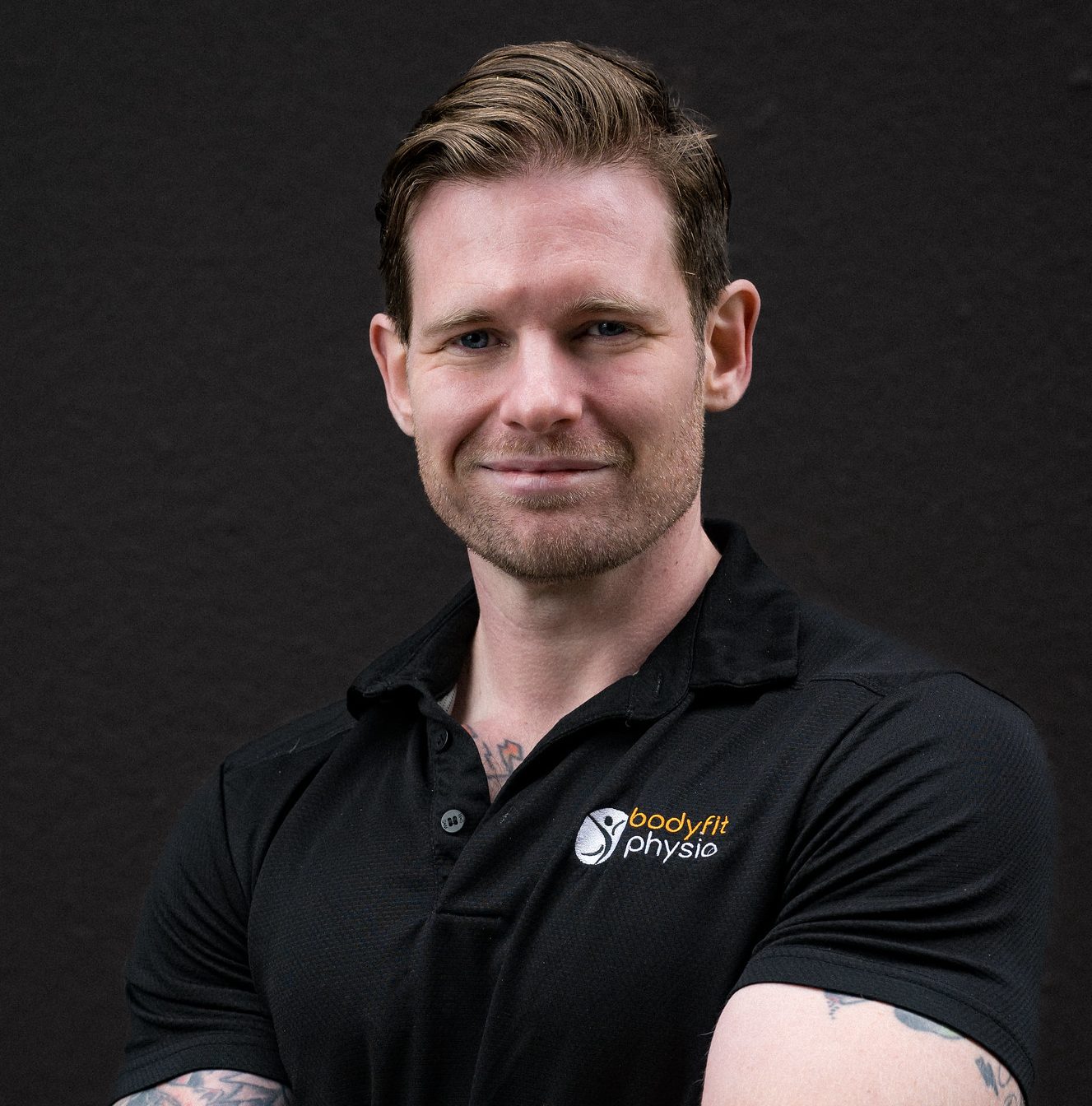
Daniel Walker (he/him)
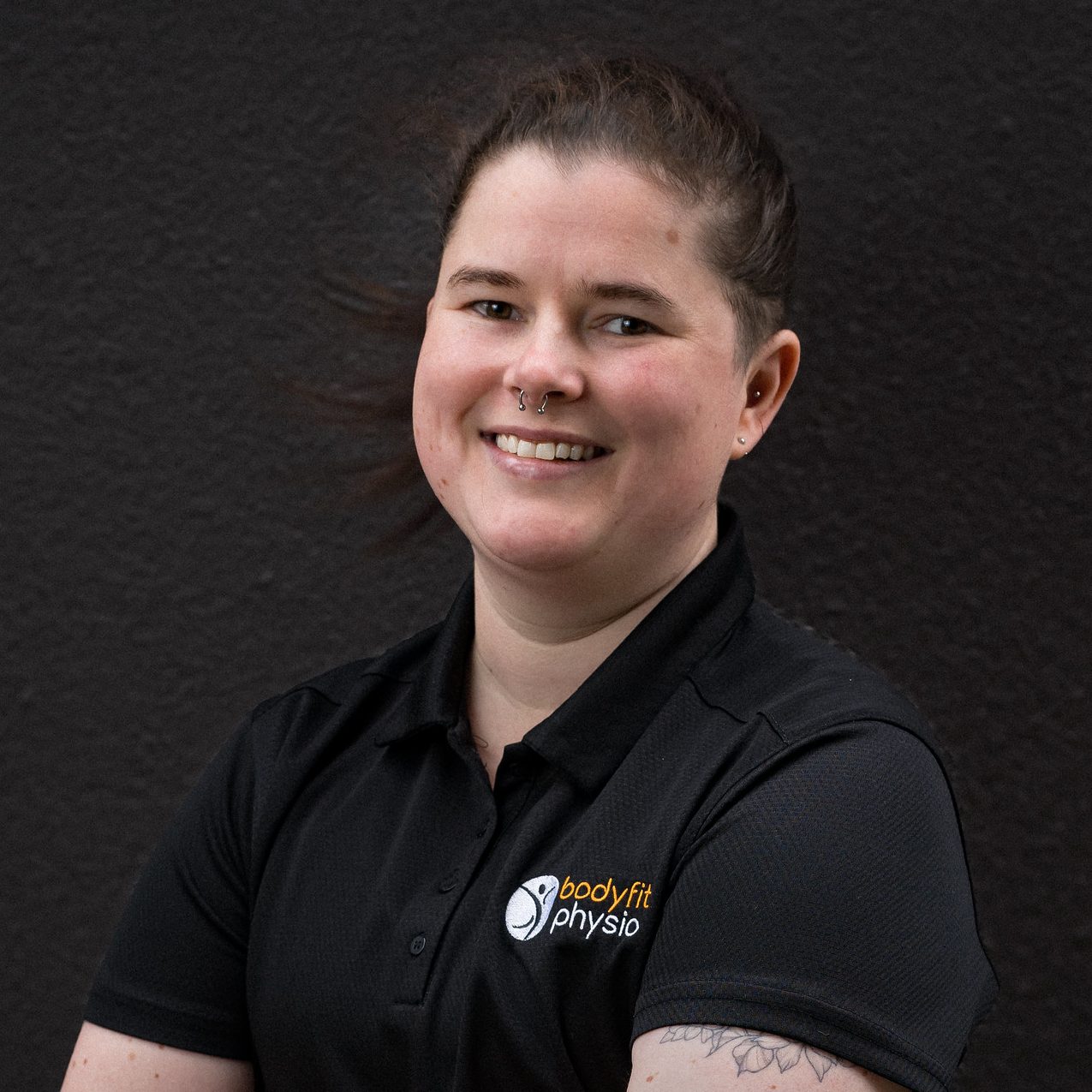
Holly Shuttleworth (they/them)
Hypermobility Blog
Sitting Posture
Slumping is wrong, so I should sit up straight, right? Well – no… At Bodyfit Physio we believe ‘good posture’ is an efficient posture. An efficient posture balances your body parts one on top of another, engaging your core, but using a minimum of muscular activity, so...
Is our world too flat?
There is a lot of talk about why we have so many more issues with back and neck pain in the developed world compared to the developing world. Is it because we work too many hours and have too much stress? Is it because we do too much sitting and not enough exercise?...
frequently asked questions
do I need a referral for physiotherapy?
No referral is needed for Physiotherapy. GPs frequently recommend physiotherapy, but a referral is not needed unless you are receiving funding under a GP management plan, GPMP (or Team Care Arrangement, previously known as an EPC). See the next answer for more details about the GPMP.
what should I expect in a physiotherapy assessment?
The first question we ask is “What are your aims for physiotherapy?”
We want to work with you in a way that is most helpful for you. Your physiotherapist will take a detailed history, asking you a number of questions about what has been happening for you. They will conduct a thorough assessment of your joints, posture, strength and any specific activities and movements that are relevant to your issue.
Common management approaches we use:
- Problem solving around how to best manage your symptoms / issues
- Sharing exercises that you can do at home so that you can help yourself
- Hands on treatment to improve your symptoms and mobility
- Supervised specially tailored exercise with our Pilates equipment to help you build specific strength in a supported environment if you and your physio think this would be helpful for you.
is physiotherapy covered under medicare?
Physiotherapy is only covered under Medicare under a GP management plan, GPMP (or Team Care Arrangement, previously known as an EPC). This is a specific program for people who have a chronic and complex medical condition. It provides a rebate of $57 for up to 5 sessions total per calendar year for allied health services such as Physiotherapy, Dietetics, Podiatry and more. Your GP can tell you if you are eligible for the plan. We have limited bulk billing appointments available for concession card holders.
can I use my private health insurance?
The majority of our clients are privately funded. Many have private health insurance which can be claimed on the spot with our HICAPS terminal.
can I access physio under NDIS, workcover, TAC, DVA
Yes we are able to bill directly for NDIS, Workcover, TAC, DVA.
what should I bring with me / wear
It is helpful for you to bring any relevant letters or reports regarding your issue or investigations you have had done.
Ideally wear clothes that allow you to move and allow the body part you would like addressed to be seen. We have shorts available in case you forget. Avoid dresses for low back pain, collars for neck pain and jeans for knee pain.
If you have a foot or running issue, please bring your usual shoes.

Sana Atik (she/her)
B Physio
Sana graduated with a Bachelor of Physiotherapy from Australian Catholic University in Brisbane. She is a dedicated physiotherapist with a passion for holistic healthcare.
Prior to physiotherapy, Sana built a decade-long foundation in the wellness field, working as a qualified massage therapist, yoga teacher and Pilates instructor. This diverse experience has shaped Sana’s comprehensive, integrative approach to physiotherapy, combining manual therapy, exercise prescription, Pilates, breathwork, and yoga restorative practices to meet the unique needs of each individual.
Sana has also worked in both acute and rehabilitation settings, where she managed and treated a wide range of complex and general conditions including orthopaedic, spinal, cardiac, neurological, reconditioning and chronic conditions.
Sana is passionate about treating musculoskeletal injuries, rehabilitation, pre- and post-operative care, chronic illness management, and hypermobility. She is deeply committed to supporting clients through every stage of their recovery journey.
Outside of the clinic, Sana enjoys going to the gym, practicing yoga, exploring nature, learning Italian and spending quality time with family and friends.
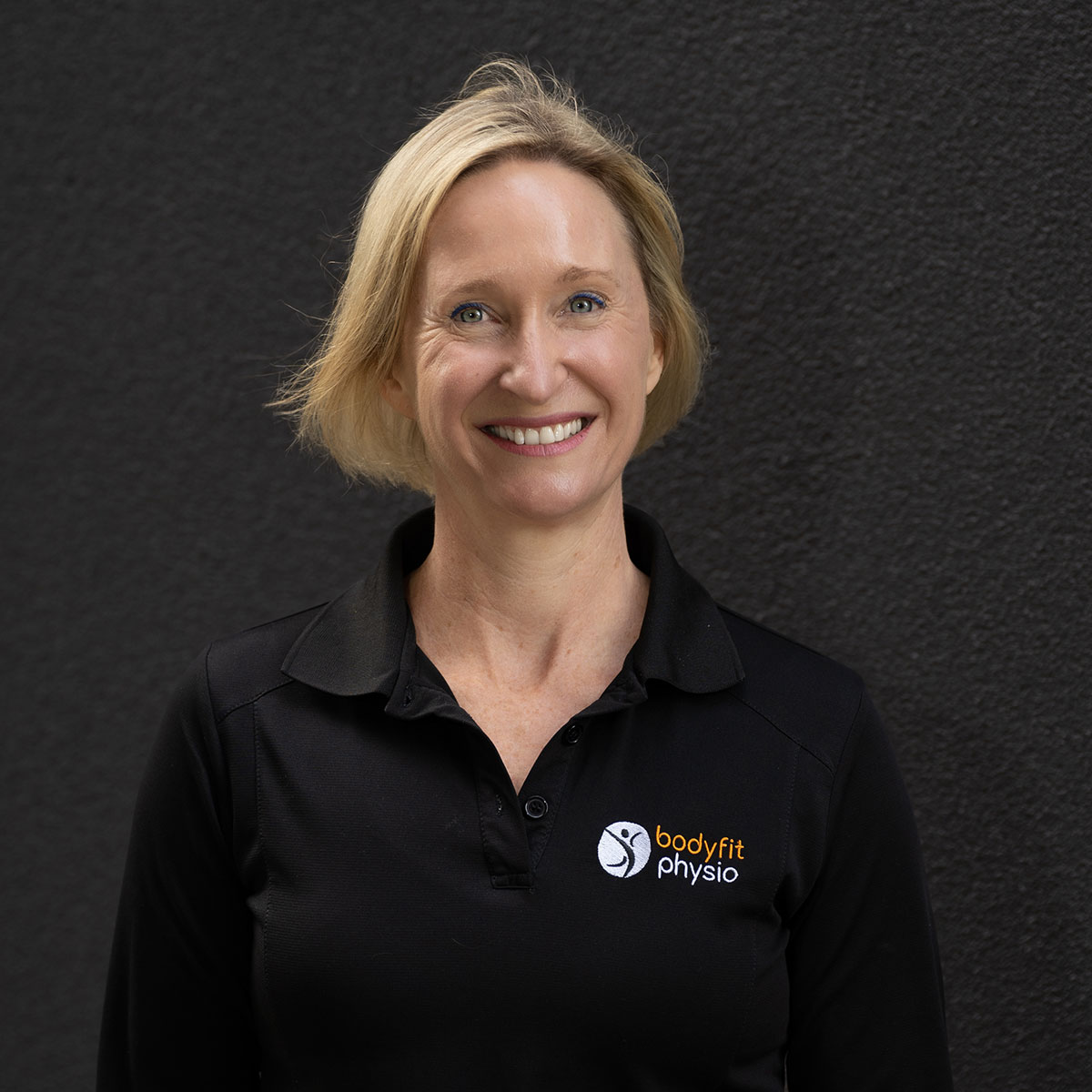
Juliet Hall (she/her)
Team leader. BSc (Physio)
Juliet loves working with her amazing team to provide high quality physiotherapy care across the clinic. Since graduating from Curtin University in Perth Juliet has gained more than 25 years of experience in all fields of physiotherapy. She finds her broad experience a valuable asset in providing a holistic approach to her client’s health. We love to be able to provide a space where everyone feels safe and cared for. Mums can bring their children to classes so that they can look after themselves. Please tell us what you need to assist you on your journey towards better health.
Juliet is passionate about advocacy for individuals or groups whose needs are not being met within the current system. She spearheaded facilitating the development and roll out of a lecture series for physiotherapists about hypermobility disorders. The Bodyfit Physio team is working to connect hypermobility practitioners through in person and online collaboration. The Bodyfit Paediatric team is working to increase awareness about Developmental Coordination Disorder (DCD), starting with maternal health nurses and Paediatricians, with a view to targeting kinders and schools in the future.
Juliet finds a combination of Pilates, strength training at the gym and taking time out every week just for her to be very beneficial for her own self-care. Juliet primarily works in conjunction with other physios in order to try and have the greatest impact. To book a time with Juliet and her staff please contact 9481 2348. Email Juliet.

Emilija Olsen (she/her)
BAppSc, MPhysioPrac
Emilija graduated with a Masters in Physiotherapy Practice from La Trobe University. Emilija's love of classical ballet and keen interest in human biology and anatomy were the basis of her original decision to become a physiotherapist.
Emilija enjoys incorporating exercise, manual therapy and education to achieve the best possible outcomes for her patients. Emilija is passionate about assisting women on their pre and post-natal journeys. In 2020, she completed a course in the latest management of diastasis recti (abdominal separation). She enjoys working with mothers and expectant mothers to improve their quality of life and achieve their individual goals. Emilija has assisted mums with goals such as safely returning to exercise, increasing strength to be able to lift and carry their baby, reducing pain and improving pelvic floor and abdominal function.
Emilija always works with clients in their own preferred style. Many of her patients find clinical Pilates to be an effective way to achieve their goals. Emilija was selected to undertake a physiotherapy placement with the Australian Ballet during her final year of study. In addition to her 17 years of dance experience, this opportunity allowed her to enhance her knowledge and skills in the treatment of dancers.
Emilija likes treating all musculoskeletal injuries, but has a particular interest in pre and post-natal management, treating ankles, knees, back pain, neck pain, and dancers. She enjoys using Pilates in the prevention and treatment of injuries. Emilija is a dry needling certified practitioner. Emilija's name is pronounced "emma-lee-yah", but you are most welcome to call her Em. Email Emilija

Terry Wesselink (she/her)
BSc (Physio); Post Grad Cert (Pelvic floor); Cert IV TAE
Terry has over 25 years of physiotherapy experience and has post graduate qualifications in Pelvic Health Physiotherapy from the University of Melbourne.
She is joining the Bodyfit team to share her extensive experience in pelvic health with the team and to support clients who need help with continence, pelvic floor, prostate or pregnancy related issues. She is also able to assist children who have bladder, bowel or toilet training issues.
Terry previously managed the Victorian Continence Resource Centre where she ran a busy NDIS Continence assessment clinic, and helped create new resources such as the Reclaim Your Core pelvic floor booklets and the www.goagainsttheflow.org.au website to bring pelvic health awareness to young women and teens.
She has delivered numerous toilet training and pelvic floor workshops to health professionals, schools and parents and is the author of a self-help book for people with incontinence, called WeeFree Women.
Terry enjoys assisting people with complex bladder, bowel and pelvic issues. With lived and family experience of Ehlers Danlos Syndrome, she has a specific interest in helping adults and children manage the impact of connective tissue disorders and other chronic conditions on pelvic health. On weekends you will find Terry in her garden watching her bees, listening to the birds or in a nearby café enjoying a cup of coffee.

Hilary McAdam (she/her)
BSc, MPhysioPrac
Hilary is a La Trobe University graduate with a Masters of Physiotherapy Practice. She also completed an undergraduate degree in the USA whilst competing as a Division I Track and Field athlete.
Through personal experience and bouts of injury as a runner, Hilary has found a passion in improving the well-being of others and has developed a growing interest in the biomechanics of the lower limb in running with an emphasis of preventing injuries and improving technique.
Hilary also enjoys exploring movement with kids and teens and uses fun, goal-oriented games and activities to support each child, whilst drawing from experience as a swimming teacher and running youth fitness and skill development classes. She has a special interest in helping children and teens manage the impact of connective tissue disorders and those with Development Coordination Disorder (DCD). Hilary is passionate about encouraging everyone to be active and engage with the world in a physical sense and is committed to listening to each person’s story and understanding their individual goals to develop a shared plan that everyone believes in and can take ownership of. Hilary uses a mixture of both hands on and exercise-based treatment methods and enjoys using Pilates in the prevention and treatment of injuries.
Outside of the clinic you’ll find her cycling everywhere, running, playing the piano, and enjoying live music with friends on the weekend.

